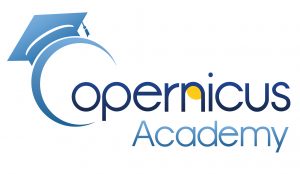Copernicus Academy
In 2017, the European Commission launched the Copernicus Academy to contribute on spreading awareness and knowledge about Copernicus across and outside the EU. As an integral part of the European Space Strategy, the Copernicus Academy has the ambition to develop new tools, to foster exchanges of knowledge as well as cross-border and cross-sectorial collaboration, with a view to contribute to unleashing the vast potential of Copernicus Sentinel data and service information.
The aim of the European Commission and the currently over 160 members of the Copernicus Academy is to bridge the gap between skills and data use and enable the uptake of Copernicus data in new sectors. Their aim is to foster the development of interdisciplinary masters and educational classes, skills boosting programmes for vocational training, industry-university traineeships and the creation of spin-offs. The Copernicus Academy connects universities, research institutions, business schools, both private and non-profit organisations, in the Copernicus Participating Countries (EU28 + Norway & Iceland) and beyond.
For further information, visit at Copernicus Academy website.

Copernicus Academy activities at UTU
The University of Turku has been a Copernicus Academy member since 2018. Our interests in the Copernicus Academy Network are threefold:
1] We are developing higher education open-access learning solutions (methods) and materials (on-line), which would allow wider intake of Earth Observation solutions in the university education and research, as well as in our stakeholder cooperation (participatory geospatial solutions). The focus is both on the basic level potential (to be able to involve citizens and school classes) as well as on more demanding research-led potential (e.g. environmental modelling).
Currently, our BSc, MSc, and PhD education is integrating the Copernicus data and tools at least in the following regularly organised courses:
- Basics in Geoinformatics
- Methods in Remote Sensing
- Remote Sensing of Environment
- Applied Geospatial methods
2] We want to develop competences, which feed into establishment of geospatial innovations, spin-offs and novel data solutions, jointly with public and private sector actors and in direct contact with citizens through their participation to geospatial hackathons and mapathons.
Examples of the competence development activities that we have conducted during the recent years include:
- BalticSatApps was a project where the users of Earth Observation data and developers met. The goal was to achieve better results from the European Copernicus Programme data.
- WeSeaChallenge was an open idea competition, where novel solutions for supporting the sustainable planning and monitoring of marine environment were sought.
- Copernicus -infokit presenting information about satellite applications and a list of useful links has been created (pdf).
3] We seek to offer internship possibilities for our students with EO companies and actors in Europe. Since we have strong emphasis on geospatial research and education in the Global South, especially Africa and South America, we also engage the Global South actors into the Copernicus user-community and activities:
- The Resilience Academy aims to equip young people with the tools, knowledge, and skills to address the world’s most pressing urban challenges and ensure resilient urban development. An initiative is led by five academic institutions from Tanzania and Finland.
